Quelques dates...
S’ouvrant sur la place Stravinsky, l’Ircam a été créé en 1970 sur la volonté du Président Pompidou d’adjoindre un centre de création musicale au centre national d’art et de culture Georges Pompidou, dans une optique pluridisciplinaire.
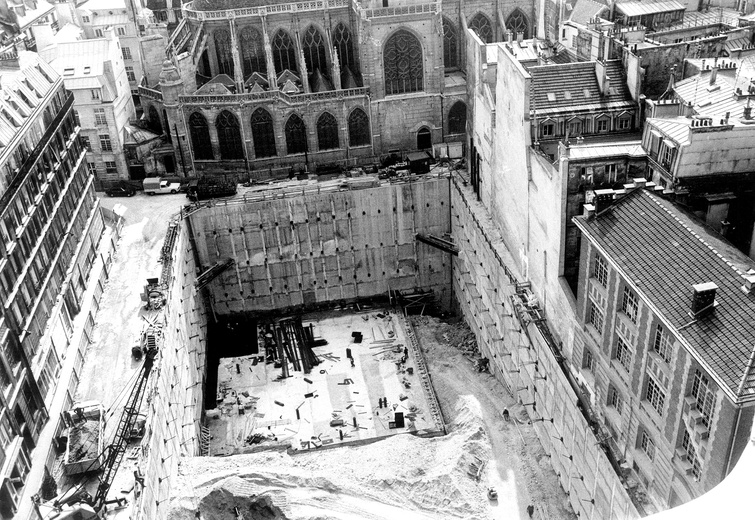 Construction de l'Espace de projection
Construction de l'Espace de projection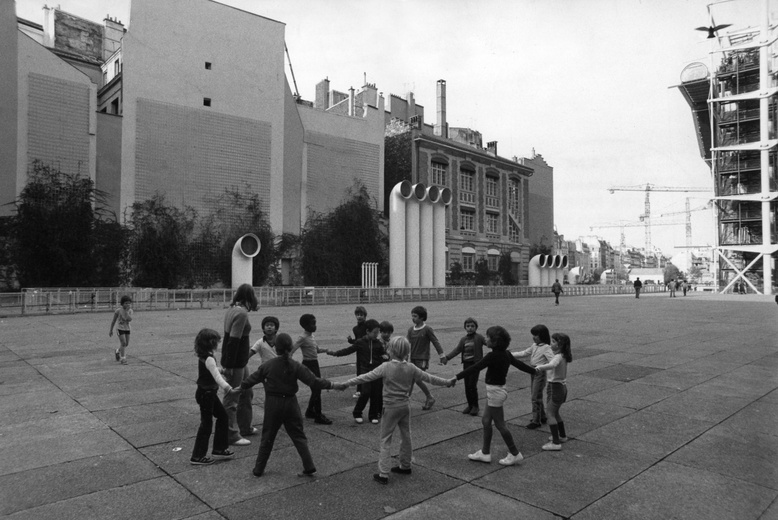 L'Ircam avant la construction de la fontaine créé par Niki de Saint-Phalle et Jean Tinguely L'Ircam avant la construction de la fontaine créé par Niki de Saint-Phalle et Jean Tinguely © Serge Korniloff
L'Ircam avant la construction de la fontaine créé par Niki de Saint-Phalle et Jean Tinguely L'Ircam avant la construction de la fontaine créé par Niki de Saint-Phalle et Jean Tinguely © Serge Korniloff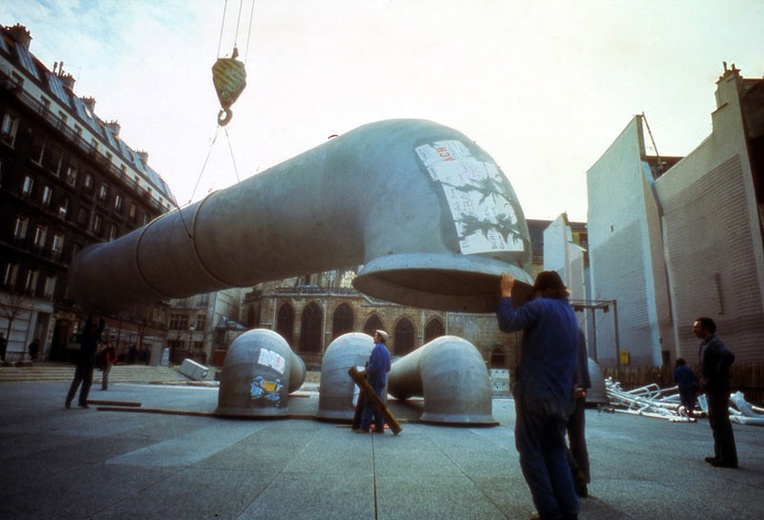 Transport et mise en place des bouches devant l'Ircam
Transport et mise en place des bouches devant l'Ircam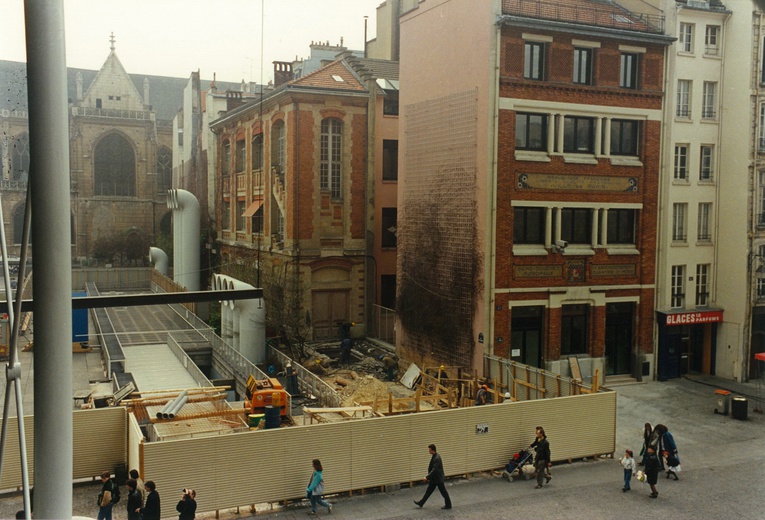 Construction du bâtiment conçu par Renzo Piano
Construction du bâtiment conçu par Renzo Piano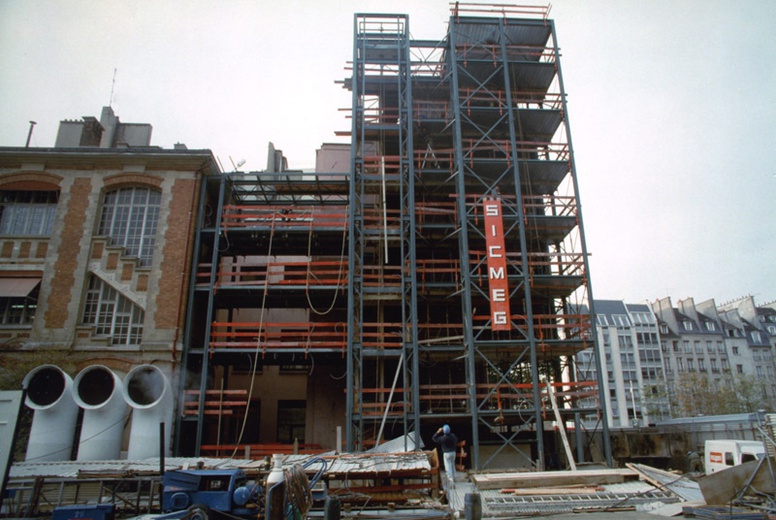 Construction du bâtiment conçu par Renzo Piano
Construction du bâtiment conçu par Renzo Piano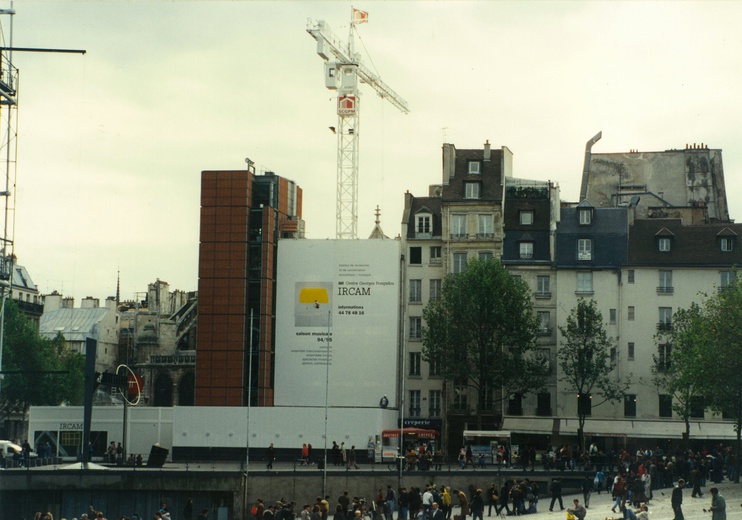 L'Ircam en travaux avec l'annonce de sa saison artistique 1994-1995
L'Ircam en travaux avec l'annonce de sa saison artistique 1994-1995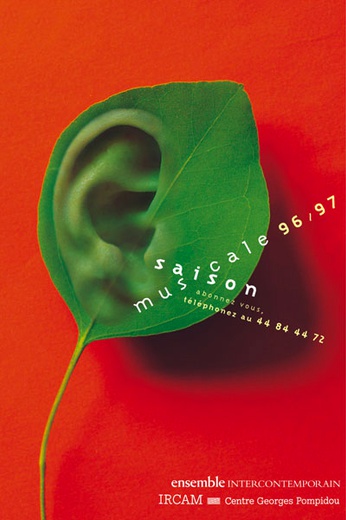 Visuel de la saison artistique 1996-1997 © Michal Battory
Visuel de la saison artistique 1996-1997 © Michal Battory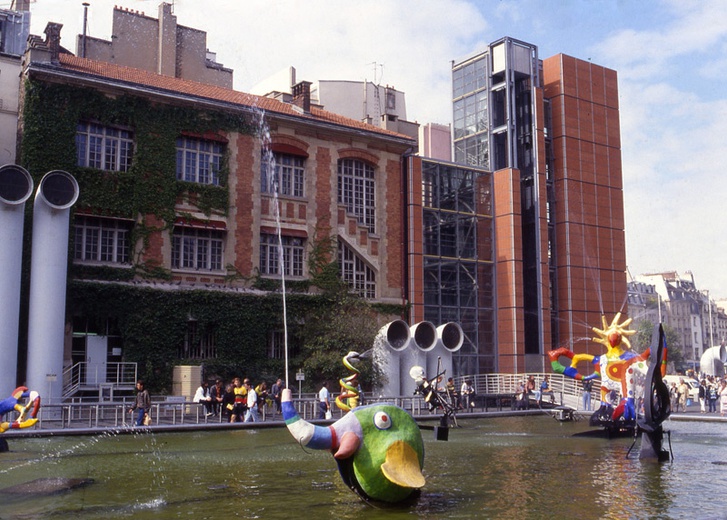 L'Ircam en 1998
L'Ircam en 1998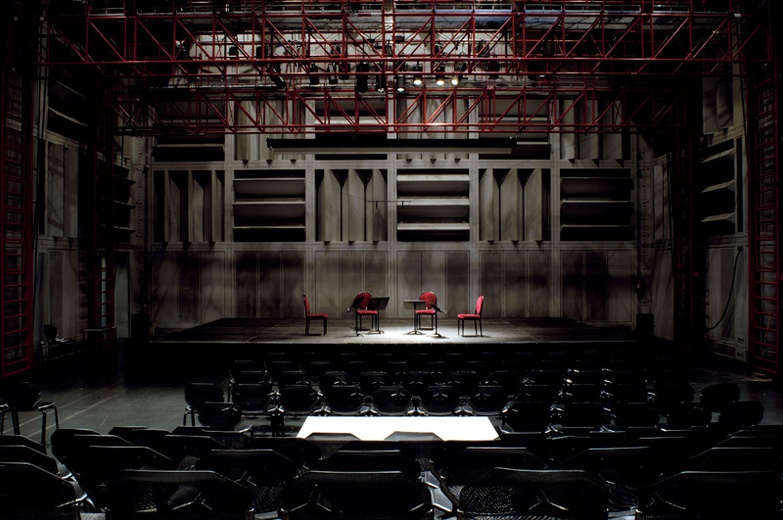 L'Espace de projection © O. Panier des Touches
L'Espace de projection © O. Panier des Touches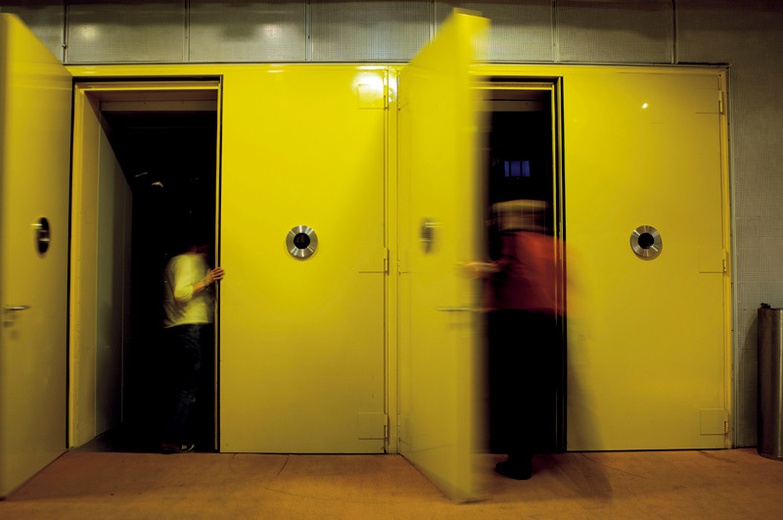 Création du festival Agora, concert à l'Espace de projection © O. Panier des Touches
Création du festival Agora, concert à l'Espace de projection © O. Panier des Touches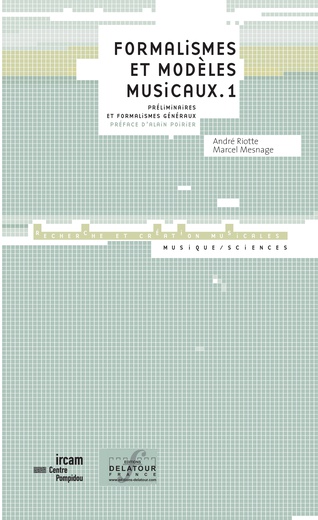 Lancement de la collection Musique/Sciences en coédition avec Delatour-France en 2006
Lancement de la collection Musique/Sciences en coédition avec Delatour-France en 2006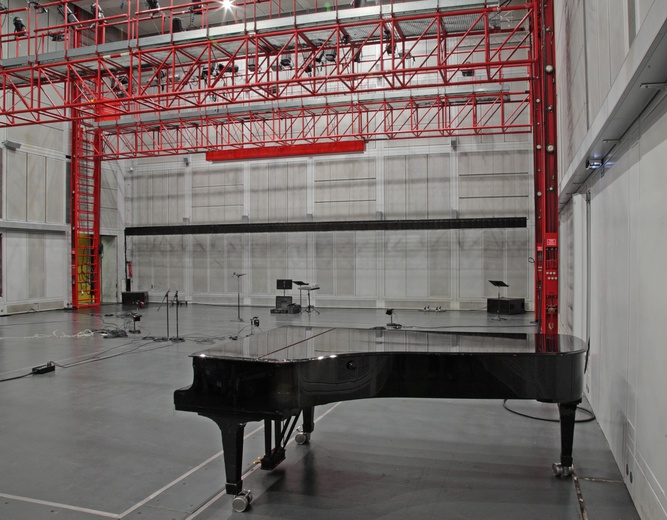 Inauguration du système de spatialisation sonore par Wave Field Synthesis et Ambisonics à l'Espace de projection © Philippe Migeat
Inauguration du système de spatialisation sonore par Wave Field Synthesis et Ambisonics à l'Espace de projection © Philippe Migeat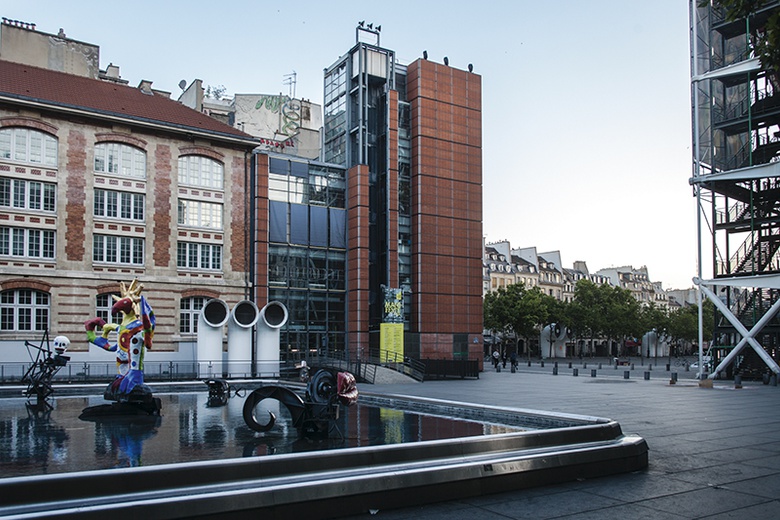 L'Ircam en 2012 avec la première édition du festival ManiFeste © Éric Laforgue
L'Ircam en 2012 avec la première édition du festival ManiFeste © Éric Laforgue
Chronologie
2020 | La Banque des Territoires (Caisse des dépôts), Believe et E.T.R.E rejoignent l’Ircam au capital d’Ircam Amplify pour ses développement |
2019 | L’Ircam crée Ircam Amplify, sa société de commercialisation des innovations audio. Véritable pont entre l’état de l’art de la recherche audio et le monde industriel au niveau mondial, Ircam Amplify participe à la révolution du son au 21ème siècle. |
2017 | Première édition du forum Vertigo, sur la création et l'innovation en lien avec les technologies numériques. |
2016 | L'Ircam se place au cœur de l'Europe scientifique et artistique en coordonant le projet européen H2020 Vertigo Starts. Avec Créative Europe, se déploient le réseau ULYSSES des académies et le projet Interfaces pour renouveler la forme du concert. |
2015 | L'Ircam devient membre associé au Comité Colbert. Lancement du «Music Technology Program» avec New York University. |
2014 | Création et lancement d'un doctorat de recherche en composition, avec Sorbonne Universités, l’UPMC et Paris-Sorbonne. Lancement de la Chaire UPMC sur la Mobilité et Qualité de Vie en Milieu Urbain, avec PSA et Renault. |
2013 | Essor de trois starts-up issues de l'Ircam : Niland, Phonotonic et Mogees. |
2012 | Première édition de ManiFeste, festival international et académie pluridisciplinaire. Constitution d'une équipe de recherche commune Inria/Ircam sur les langages synchrones. Inauguration du nouveau dispositif de spatialisation sonore multicanal équipant l'Espace de projection et combinant les systèmes WFS et Ambisonics |
2011 | Lancement des Ircamax, collection de patchs pour Max for Live. |
2010 | L'UPMC rejoint le ministère de la Culture et de la Communication et le CNRS au sein de l'Unité mixte de recherche STMS. Mise en œuvre de la valorisation industrielle. Lancement des Ircam Tools, collection de plug-ins issus des laboratoires de l'Ircam et commercialisés par Flux::. |
2009 | Dans le cadre du festival Agora, première utilisation du système WFS en situation de concert pour la création de Philippe Schoeller. Premier appel à projets pour la résidence en recherche artistique. |
2008 | Lancement de Sirènes, nouvelle collection discographique pour la musique contemporaine réunissant l'Ensemble intercontemporain, l'Ircam et Kairos. L'Ircam s'associe au CentQuatre, nouvel établissement culturel de la ville de Paris, pour créer une avant-scène expérimentale. |
2007 | Création du nouveau Cursus 2 pour les jeunes compositeurs, en partenariat avec le Fresnoy et les conservatoires européens. |
2006 | Frank Madlener succède à Bernard Stiegler à la tête de l'Ircam : la direction artistique devenant direction générale de l'institut. Publication du premier numéro de L'Étincelle, journal pluridisciplinaire de la création à l'Ircam. Lancement de la collection Musique/Sciences en coédition avec Delatour-France. |
2005 | Première édition de la nouvelle revue annuelle de l'Ircam L'Inouï, avec les éditions Léo Scheer. |
2004 | Lancement de nouveaux groupes de recherche musicale (orchestration, rythme, voix). |
2002 | Bernard Stiegler prend la direction de l'Ircam. Livraison des Musique Lab, logiciel conçu par l'Ircam et le ministère de l'Éducation nationale, destiné à l'enseignement musical dans les collèges et lycées. Première édition des Résonances, rencontres scientifiques et internationales sur les technologies musicales. |
1999 | François Raffinot rejoint l'Ircam pour y diriger le nouveau département de création chorégraphique. |
1998 | Première édition du Festival Agora. Création d'OpenMusic, environnement de programmation visuel pour la création d'applications de composition assistée par ordinateur. |
1996 | Inauguration de la médiathèque de l'Ircam. |
1995 | L'Ircam et le CNRS s'associent autour d'une unité mixte de recherche intitulée Ircam-CNRS, puis Sciences et technologies de la musique et du son (STMS UMR 9912). Création du Spatialisateur, logiciel destiné à l'acoustique des salles, à l'espace sonore urbain et au concert. |
1994 | Lancement d'une collection de disques monographiques en collaboration avec l'Ensemble intercontemporain et Adès. Création d'AudioSculpt, logiciel graphique permettant de manipuler le son. |
1993 | Mise en place du Forum Ircam (utilisateurs des logiciels Ircam). Lancement d'une politique de valorisation industrielle. Création du Master Atiam en collaboration avec plusieurs universités et établissements d'enseignement supérieur. |
1992 | Laurent Bayle succède à Pierre Boulez qui devient directeur honoraire. Sortie du magazine Résonance et de la collection Les Cahiers de l'Ircam. Première opération portes ouvertes. |
1990 | Création du Cursus international de composition et d'informatique musicale. |
1988 | Création de Max, logiciel destiné à traiter en temps réel l'interaction entre ordinateur et interprète. Création de Modalys, logiciel de synthèse par modèles physiques. |
1986 | Publication du premier numéro de la revue InHarmoniques. |
1981 | Mise au point du système 4X, dernier maillon de la série de processeurs de sons numériques développée depuis 1976. Création de Répons, première oeuvre de Pierre Boulez réalisée à l'Ircam. |
1978 | Premières manifestations publiques à l'Ircam. |
1977 | Ouverture du bâtiment conçu par Renzo Piano. |
1970 | Pierre Boulez est chargé par le président Georges Pompidou de créer et diriger un institut de recherche et création musicales associé au Centre Pompidou. |


